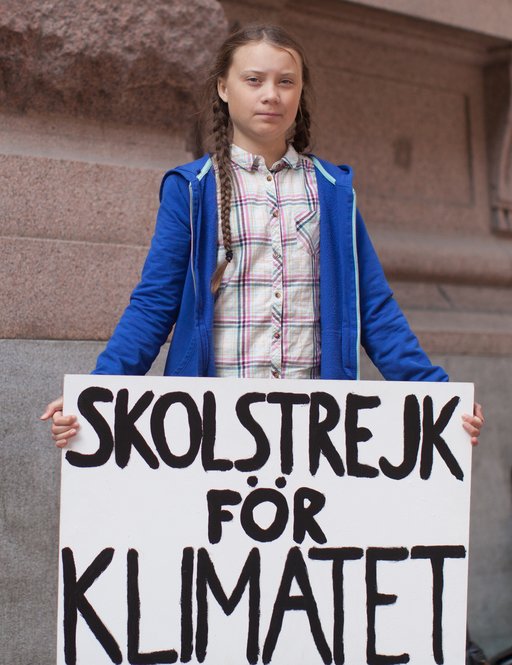Flygskam / Flight shame
Shame and climate change with a focus on Sweden.

Summary: Although the word ‘flygskam’ or flight shame existed in Swedish previously, it was in the spring of 2018 that some Swedish journalists began writing about feelings of shame associated with flying due to its climate impact. This interest grew rapidly into a national debate spurred on by the ongoing discussion on climate change and mitigation. There were those who disliked framing flying as a moral issue. However, it seems that for those people who actually stopped flying for climate reasons, ethical considerations were crucial.
When Greta Thunberg, then 16, shouted “How dare you?” in a speech at the United Nations’ Climate Action Summit in September 2019, she turned things upside down. She started by saying that it was all wrong, and that she should be in school and not fighting climate change. And she continued:
“People are dying. Entire ecosystems are collapsing. We are at the beginning of a mass extinction, and all you can talk about is money and fairy tales of eternal economic growth. How dare you!”
Greta Thunberg’s message was that those grown-up people of the United Nations should be ashamed of their inability to tackle climate change and that they focused on the wrong things. Her rage and attack immediately became world news. She was of course famous internationally already before her speech, and that is why she was invited to the UN in New York in the first place - but, with this address, she also managed to enrage people in some quarters.
A public discussion on flying
A year earlier, when Greta Thunberg started her School Strike for the Climate in August 2018, a public debate on flying was already going on in Sweden. It had started in the early spring of that year, arguably with a few journalists who wrote in the news media about their mixed feelings on flying. One pondered the absurdity of going by plane to Kenya to show children dying coral reefs, realising that his trip was in fact part of the problem. Another one wrote that she loved to fly, but that she could no longer cope with the moral guilt. These journalists had suddenly realised the size of their own emissions of greenhouse gases and understood that flying was responsible for an enormous portion of their own footprint. This realisation was very painful.
The public discussion on flying then really took off in Sweden with a great number of news articles, radio and TV programmes where the topic was discussed. Social media was also a place for exchange and discussion, as were dinner parties and work places. The “We stay on the ground”-organisation (Vi håller oss på jorden) was formed and issued a challenge of a flight-free 2019, which meant that one should abstain from flying that coming year.
Flight shame takes off

The word flight shame – flygskam in Swedish – already existed in 2017 but had not yet caught on. In public and private discussion on flying in 2018, the issue of shame and conscience suddenly seemed to appear everywhere. Flying was something to be scorned or disproved of, something to feel guilty or ashamed about. There were public figures taking a stance. Greta Thunberg, for example, did not take a plane to the UN summit, but a boat. Her mother, who is a famous Swedish artist, had announced that she had stopped flying already in 2016.
Conditions for flight shame
Recognising the size of the emissions generated from flying, and realising the severity and acuteness of the climate crisis is a prerequisite for the existence of flight shame. A round-trip from Stockholm to Thailand creates a climate impact corresponding to two tons of carbon dioxide. In 2023, the average emission of a citizen in Sweden is around eight tons per person per year. We have to reach four tons by 2030 to meet the climate goals that have been set. If we are to take climate justice into account, we must reduce this amount even more. This means that a couple of flights easily eats up major parts of one person's emissions quota. Another condition for flight shame to be relevant is of course that people fly. This might seem self-evident, but many see flying as a normal or necessary part of their lifestyle, unaware that only a small percentage of the world's population fly. Such an awareness does, however, seem to have developed in Sweden in the last few years.
Flight shame can work because we either feel that our conscience tells us it is wrong to fly, or because our social group – people that we count as important in our lives – dislike that we continue to fly. How and when these aspects are connected is difficult to say. Our conscience can object when we realise that our actions have negative consequences for others, like our children or other people far away. Or, when we simply feel that flying is unjust. This can happen as a result of increased knowledge, when we shift our comparison, or gain tacit experience of climate change in the form of, for example, wildfires or flooding. But we can also feel obliged to stop, or cut down, if we fear that those we care about will object and perhaps even reject us.

Flight shame spread
Translations of the term flight shame soon showed up in many languages and the international media interest was enormous. The idea that those who had stopped flying shamed others who continued to fly was recurring in international media coverage of the Swedish discussion. However, the term flight shame does not seem to come, as one might think, from the no-fly movement. In their research, Sara Ullström and Kimberly Nicholas have traced a longer and more positive movement, with a focus on the merits of being flight free, well before 2018. The “We stay on the ground” organisation took great care not to shame people, but to encourage.
It seems that the term flight shame was mainly used in contexts expressing scepticism regarding flying as a moral issue. The word “shaming” is negatively charged in Sweden, with references to cultures of honour and archaic morality, moving the guilt to those who shame others, rather than those carrying out the action that is perceived to be shameful.
In our own research, we were interested in what was decisive for those people who had stopped flying for climate reasons. In a survey that was answered by almost 700 people, they shared their arguments with us. We realised that many who had stopped flying were very self-conscious about it and found it hard since it had caused them to break habits and challenge existing practices. Moral reasons were common. Those who reported that they had stopped flying for moral reasons did not describe themselves as shamed, but rather as having been supported to live up to their own moral standards in order to avoid any painful inner conflict. Sometimes it was children who had influenced adults to take this step.
Shame is a strong feeling
In the past, Swedish flying has increased steadily by a few percent per year, with temporary exceptions for events such as September 11 and the financial crisis in 2008. But when the aviation debate started in 2018, the increase levelled off and in 2019 there was a real decrease of just over 4 % for the first time. During the pandemic flying decreased dramatically. Now it has increased again, but Swedes' flying habits are still 34 % lower than when they were at their peak in 2018. It is difficult to know how our changed flying habits have been affected by altered norms around flying or by the pandemic (globally, flying is not back to previous levels), but it is also not unlikely that these factors worked in unison: It was possible, it turned out, to live without holiday trips to Tenerife or Southeast Asia. Such an experience can make it easier to decide to stop flying. That attitudes change, however, can be seen in recurring surveys carried out by the Environmental Protection Agency in Sweden. To the question "Have you done anything in your everyday life to reduce your climate impact in the last two years when it comes to your choice of holiday travel?", the percentage of the Swedish population who answered "yes" increased from 37 per cent in 2015 to 62 per cent in 2021 (The public on the climate report from 2021 (In Swedish): Allmänheten om klimatet 2021).
In discussions on sustainability, there is an idea that moral arguments should not be used, partly because it is unfair to demand that individuals take responsibility for something that is a systemic problem, and partly because it is believed that it does not work, and perhaps even fosters feelings of resistance. Instead, the focus has been on making it easy or tempting to do “the right thing”. The problem is that nudging, as it is called, seems to work poorly on lifestyle changes that involve the loss of something you value.
Studies show that our lifestyle is important
Climate research shows that we must also deal with lifestyle emissions (IPCC Sixth Assessment Report). Technological changes will not be enough to solve the crisis in time. Studies also show that moral considerations actually play an important role for those who make a lifestyle change that may be perceived as a sacrifice. Examples from history also show that norms can change quickly. In many countries the view on same-sex marriages have changed in a short time, and we no longer smoke in cars or restaurants. New values and behaviour are contagious and can be spread through discussions among friends, family, neighbours, colleagues....or even a child who says “How dare, you?”
Rhetoric and environmental studies can shed light on fundmental challenges to society.
This article is published in response to readers' interest in climate change, crises, and the pressure on young people to deal with the mistakes of the generations that came before.
Further reading:
- Lisa Jacobson, Jonas Åkerman, Matteo Giusti, and Avit K. Bhowmik, 'Tipping to Staying on the Ground: Internalized Knowledge of Climate Change Crucial for Transformed Air Travel Behavior', Sustainability 12, 5 (2020), Article 5.
- Maria Wolrath Söderberg and Nina Wormbs, Grounded: Beyond Flygskam, (Fores, 2019).
- Nina Wormbs and Maria Wolrath Söderberg, 'Knowledge, Fear, and Conscience: Reasons to Stop Flying Because of Climate Change', Urban Planning 6, 2 (2021), Article 2.
- Sara Ullström, Johannes Stripple, and Kimberly A. Nicholas, 'From aspirational luxury to hypermobility to staying on the ground: changing discourses of holiday air travel in Sweden', Journal of Sustainable Tourism 31, 3 (2023), pp. 688–705.
Links:
-
Podcast Klimagap with one of the authors, Maria Wolrath Söderberg (In Swedish).

